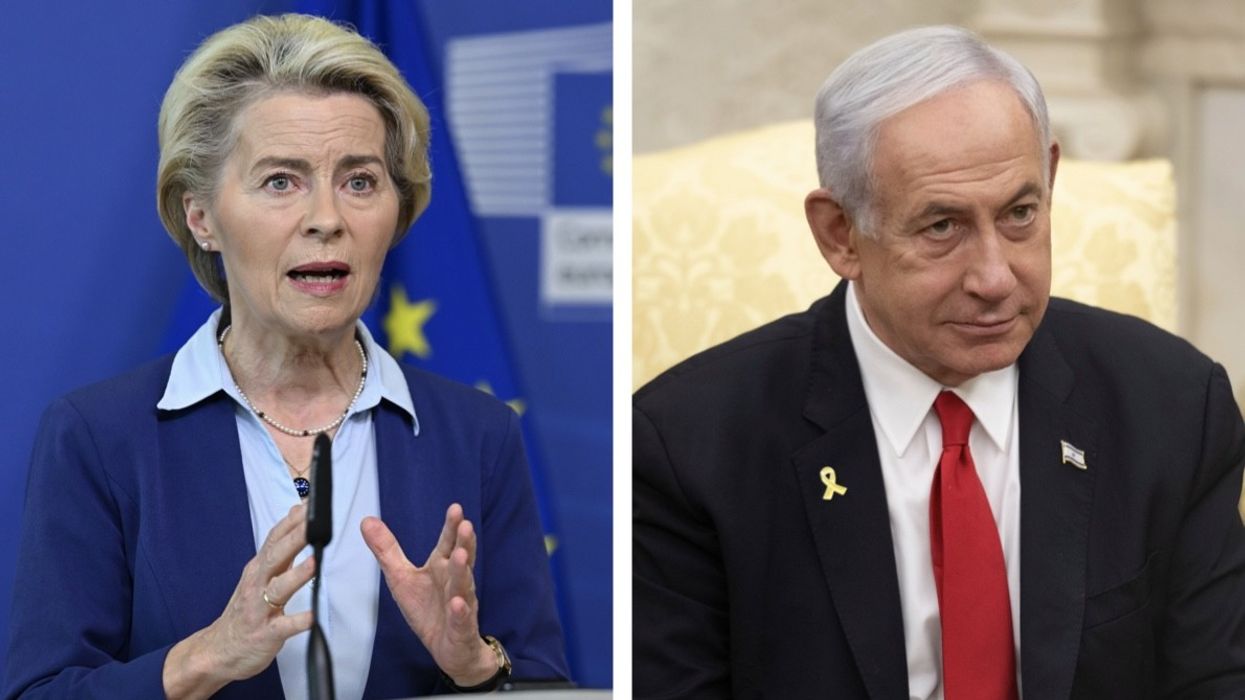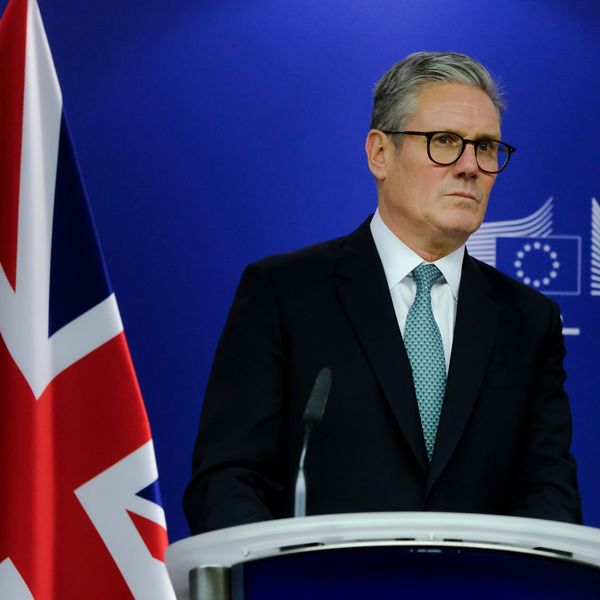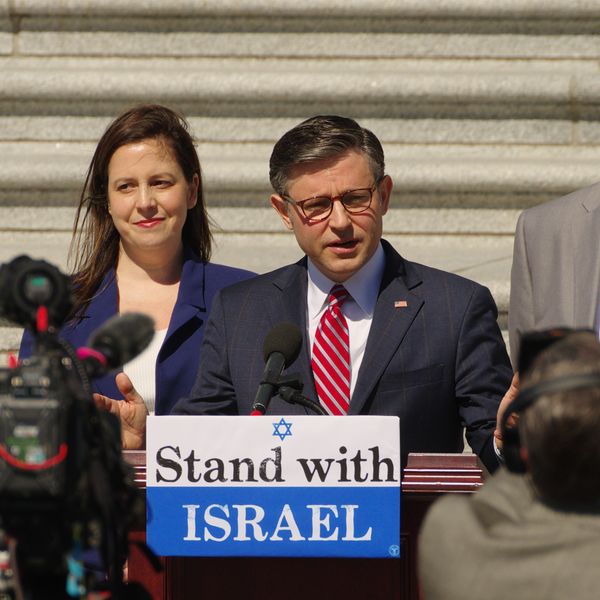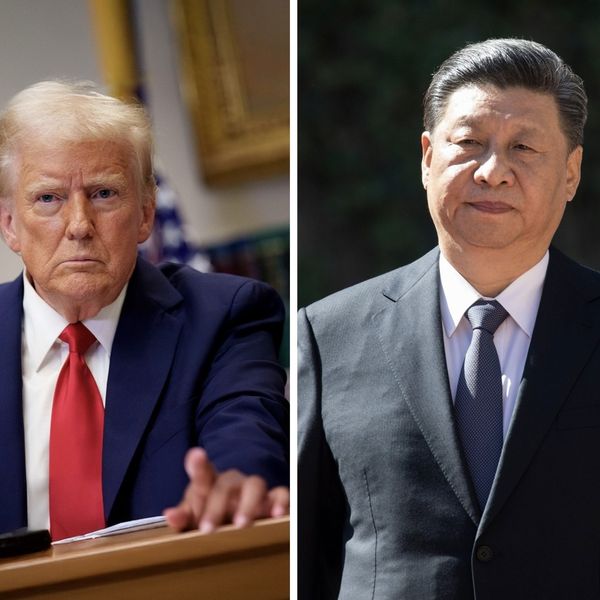With the 2020 election going into overtime, it was inevitable that the issue of Israel-Palestine would not stay out of the spotlight. In the state of Georgia, a runoff election for its Senate seats is the site of renewed controversy.
Republican Senator Kelly Loeffler is trying to defend her seat against Democratic candidate, Rev. Raphael Warnock, the minister of the Historic Ebenezer Baptist Church where the Rev. Dr. Martin Luther King, Jr. was co-pastor from 1960-68. Loeffler, a Trump ally who has been outspoken in her opposition to the Black Lives Matter movement, accused Warnock of antisemitism because he has opposed Israel’s occupation and its concomitant denial of basic Palestinian rights.
This isn’t just an epilogue to the presidential election. Despite Joe Biden’s victory, the Democratic majority in the House of Representatives narrowed, and their chances of taking control of the Senate, which once looked promising, have been reduced to the slim hope of winning both contested seats in the Georgia runoff, on January 5, 2021.
If Democrats win both Senate seats at stake in Georgia, they will have achieved a 50-50 split in the Senate, with the new Vice President, Kamala Harris, holding the tiebreaking vote when necessary.
Perhaps more importantly, winning 50 Senate seats would mean that the Senate Majority Leader — currently Mitch McConnell, the Kentucky Republican who has blocked most Democratic initiatives since assuming the role in 2015 — would be a Democrat. That job carries a great deal of power, so the battle between Loeffler and Warnock takes on extra gravity.
Loeffler vs. Warnock
Kelly Loeffler was appointed to the seat when Sen. Johnny Isakson stepped down at the end of 2019. As a result, last week’s vote in Georgia was a special election for that seat, and twenty candidates — Democrats, Republicans, Independents — were on the ballot.
Warnock garnered around one-third of the vote, claiming a clear plurality, but Loeffler was not far behind, with 26 percent. Another prominent Republican, Rep. Doug Collins, garnered 20 percent, splitting the right-wing vote between two prominent, very conservative Republicans. But with so many other candidates in the race, it’s anyone’s guess how things will go in a runoff, which, according to Georgia’s election laws, is mandated by the fact that no candidate won at least 50 percent of the vote.
It will be a heated race, and when the issue of Israel-Palestine arises, it inevitably heats things up even more.
Loeffler’s attack on Warnock stems from a letter he signed in March 2019, after a delegation of Black Christian faith leaders from the United States and South Africa visited Israel and the West Bank. The letter, published on the web site of the National Council of Churches, expressed a profound concern over the denial of Palestinian human rights, but also remarkable sympathy for the Jewish experience both of antisemitism in the world at large and of long-term conflict in Palestine-Israel.
But Loeffler called Warnock “anti-Israel” because of his criticism and, most importantly, because of “endorsing the [Black Lives Matter] political organization, which strongly supports the anti-Zionist Boycott, Divest, and Sanction (BDS) Movement.” The implication that BLM is antisemitic is barely concealed, as Warnock noted in his response to the attack.
Jewish Insider reported on the letter Warnock signed but also talked about a completely different letter, issued by the Progressive National Baptist Convention, which called for the United States to end military aid to Israel, a politically explosive call in any congressional race.
The report also disingenuously stated that the letter had likened “Israeli control of the West Bank to ‘previous oppressive regimes’ such as ‘apartheid South Africa.’” In fact, the letter had likened Israel’s occupation of the West Bank to South Africa’s occupation of Namibia, which ended in 1990, and only compared the two in terms of the militarization of the two areas.
On Monday, Jewish Insider posted a video of Warnock in 2018, drawing a connection between the Black Lives Matter movement and the Palestinian struggle for freedom, a comparison that is commonly invoked and, despite the discomfort it may cause in some pro-Israel circles, one that is clearly defensible.
In that same video, Warnock called explicitly for a two-state solution between Israel and Palestine. It was a sermon recorded in response to Donald Trump moving the U.S. Embassy to Jerusalem, and Warnock, like many others, was commenting on the juxtaposition of Israel using live ammunition to brutally suppress unarmed Palestinian protesters — injuring 2,700 and killing 60 — while the United States and Israel celebrated not far away.
A disappointing response
In response to these accusations, Warnock wrote an op-ed detailing his devotion to the Jewish people and to Israel. In a familiar refrain, he invoked the long, brutal history of antisemitism as a reason to support Israel and, by implication, to ignore or at least downplay its crimes.
In his 2018 sermon, Warnock said, “We saw the government of Israel shoot down unarmed Palestinian sisters and brothers like birds of prey. And I don’t care who does it, it is wrong. It is wrong to shoot down God’s children like they don’t matter at all. And it’s no more antisemitic for me to say that than it is anti-white for me to say that Black lives matter. Palestinian lives matter.”
That would seem, to most Democrats, to most American liberals, a perfectly commendable position. But in the wake of the attacks on him, instead of pointing out that he only spoke the truth, Warnock wrote, “I support President Obama’s security assistance memorandum of understanding that protects Israel, and I agree with President-Elect Biden that placing conditions on our assistance would be a mistake.”
Warnock went on to voice the obligatory vow of preventing Iran from acquiring a nuclear weapon, and to denounce the BDS movement, writing, “I strongly oppose the BDS movement and its anti-Semitic underpinnings, including its supporters’ refusal to acknowledge Israel’s right to exist.”
Although Warnock did concede that BDS activists have the right to pursue their work under the First Amendment, his dash to the right of the Democratic Party in this statement speaks volumes about the continuing influence of right leaning pro-Israel groups in Democratic politics and the blurring of reality that this brings.
Warnock is worried because he is being called anti-Israel due to his objections to the killing of dozens of unarmed Palestinians in Gaza and injuring of thousands during legitimate protests within the Strip where Israel claims to have no jurisdiction. He is worried because he has likened the struggle of Black people for civil rights in the United States to the struggle of Palestinians to attain their basic rights that Israel denies them. These should be points of pride for any American leader, not concern.
Warnock is being wrongly accused of calling for the end of U.S. military aid to Israel. But his reaction defending Israel is particularly troubling in the wake of Israel destroying an entire Palestinian village on Election Day. As Matt Duss, foreign policy adviser to Bernie Sanders put it, “The U.S. should withhold military aid from client states that commit war crimes. This isn't complicated.”
If Loeffler’s attack on Warnock was disingenuous and in bad faith, Warnock’s response shows how far removed even America’s “liberal” wing is from their own principles when it comes to Palestinian rights.














